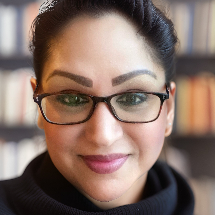Learn / Mind Control and Complex Trauma
Mind Control and Complex Trauma


December 5th, 2023| Clinically Reviewed by
Key Points
- Groups, organizations, and countries can experience mind control and complex trauma.
- Sometimes, mind control is also used to abuse and control a specific victim.
- Specialized therapies, like Karol Darsa's RITTM, address mind control and c-PTSD.
Children, young adults, and adults can suffer mind control and complex trauma. Mind control can also be a broad phenomenon experienced by people groups, organizations, and countries. Other times, it can be used as a directed form of psychological abuse.
Complex trauma is the cumulation of “multiple interpersonal threats”1 or abuse during childhood. It may come as the result of mind control or other abuses. Dr. Karol Darsa—psychologist, author, and creator of RITTM (Reconnect Integrative Trauma Treatment Model)—offers insight into healing.
Understanding Mind Control
Mind control compromises a person or group2’s freedom of choice by altering their perception, motivations, and behavior. Some mind control techniques aren’t done maliciously; for example, most advertising involves pushing emotions for a desired outcome (buying their product).
Malicious mind control aims to control another person (or group) through fear, deprivation, and confusion. For example, research found people in controlled environments with sensory stimulation removed (like visuals, smells, sounds, and other sensations) moved into a malleable emotional state. The process worked by only allowing select information to the sensory-deprived person. In that state, new ideas or beliefs could be implanted and believed3.
As an example, the only stimulation provided to someone could be a repeated fact of any sort. With nothing else to occupy or influence their thoughts, it can be easier to believe and act upon whatever information is provided.
Similar emotional states could be achieved through abuse and trauma, where stress and abuse return the brain to its primal, animalistic survival functions. In its worn-down state, the victim’s brain could accept and believe almost anything about themselves or the world around them.
Mind control as a form of abuse could lead to complex trauma and complex post-traumatic stress disorder (c-PTSD), especially if it occurs in childhood.
An adult with c-PTSD caused by mind control may struggle to trust others, themselves, and their reality. Sometimes, they may not even know why they don’t trust; just that they don’t.
Complex Trauma and Its Prolonged Impact
C-PTSD usually occurs due to childhood trauma. Complex trauma can have more severe consequences2 than non-complex trauma. It can also cause the onset of depression, anxiety, PTSD, substance use disorder, and dissociative identity disorder (DID).
C-PTSD can have more long-lasting effects2 because it occurs after repeated, inescapable traumatic events. It’s more common to experience in childhood, but it can happen at any time of your life. PTSD, in comparison, occurs as a single instance (like a rape, tornado, or car accident). Staying in activated stress states and experiencing them often, especially in childhood, can cause the more severe psychopathy and cognitive deficits associated with c-PTSD.
That means that children with c-PTSD are more likely to grow into adults with major depressive disorder, anxiety, psychotic symptoms, and addiction. Children with c-PTSD were also found to have lower IQ scores2 and poorer executive function as adults.
Psychopathy4, lower IQ scores, and poor executive functioning can have prolonged effects in adulthood. When caused by c-PTSD, these effects occur independent of other variables like genetic disposition, motivation, and effort.
Recognizing Signs of Mind Control and Complex Trauma
You or someone else could be experiencing mind control if you recognize these tactics:
- A person or group uses terror, threats, and manipulation to mold the brain into its more primal survival mode. Escape feels impossible, either physically, mentally, or socially.
- You or someone else believes the perpetrator and whatever truths they tell about you, someone else, or the world.
- You comply with their wishes and demands to survive. You’ll believe or do anything they ask out of forced trust and the need to survive. In a state of survival, your brain struggles to process information logically, which is why you may continually trust and believe the perpetrator. Doing what they say often feels like the only way to stay safe.
Complex trauma has several distinct signs5, too.
- Re-experiencing the trauma through flashbacks
- Dissociation
- Interpersonal challenges with relationships
- Self-destructive behaviors (like substance use)
- Irritability and hyperarousal, or emotional numbness
- Social withdrawal
- Hostility
You may notice these signs in yourself or someone else as a child, young adult, or adult who’s experiencing c-PTSD.
Explore Trauma Treatment Centers
Karol Darsa’s Treatment for Trauma and c-PTSD
Trauma psychologist Karol Darsa created the Reconnect Integrative Trauma Treatment Model (RITTM)6 to treat trauma. RITTM is comprehensive and body-based, which means it’s designed to heal and reconnect the mind and body.
RITTM integrates eye movement desensitization and reprocessing (EMDR) therapy, brainspotting, somatic experiencing, gestalt therapy, energy psychology, and mindfulness. The result is a whole-person approach to treatment that can help adults with c-PTSD heal their trauma and the conditions associated with it.
RITTM occurs in individual settings and stresses a positive therapeutic alliance. Rather than following strict protocols and regimes, RITTM can flex to individual needs and types of trauma. It’s been found to help with single-event and complex trauma.
Dr. Darsa’s 20 years of experience led her to write a guide on trauma healing, found a treatment center, and educate other professionals on trauma healing. She’s been featured as an expert on ABC, CBS, and more. She also lectures on trauma at universities like UCLA, Cal Lutheran, and the University of Southern California.
Other Therapies for Trauma and c-PTSD
Other forms of trauma treatment may fit your needs. Some aspects of RITTM may suit you better if they’re pulled out and focused.
EMDR can help reduce your reaction to traumatic memories7 by using eye tracking as you recall your trauma. Doing both at the same time can desensitize you to the effects of the memories and help you process your trauma.
Prolonged exposure therapy (PET)8 exposes you to an imagined scenario of your trauma or to real-life stimuli associated with it. Doing so can help reduce reactions to the experience and help you process and heal. PET may be too triggering for some; your treatment team can help you decide if this may work for you.
Trauma-focused cognitive behavioral therapy (TF-CBT)9 uses CBT to specifically focus on trauma. It can be especially helpful for children and their families. TF-CBT aims to reduce shame, guilt, and thought distortions related to trauma by identifying inaccurate beliefs and developing adaptive responses to trauma. Practitioners gradually expose patients to reminders and places to reduce their distress and reactions to trauma.
Many other trauma therapies can help you recover from complex trauma and mind control. Your doctor, therapist, or psychologist can help you find the best fit for your needs.
Finding Help for You or a Loved One
Attending a rehab for trauma, setting up therapy sessions, and actively pursuing healing can help you or a loved one heal from complex trauma and mind control.
Rehab provides a residential setting to focus on treatment and healing. There, you can experience EMDR therapy, Karol Darsa’s RITTM therapy, and other trauma therapies uniquely designed for healing.
-
Lewis, Stephanie J., et al. “Unravelling the Contribution of Complex Trauma to Psychopathology and Cognitive Deficits: A Cohort Study.” The British Journal of Psychiatry : The Journal of Mental Science, vol. 219, no. 2, Aug. 2021, pp. 448–55. PubMed Central, https://doi.org/10.1192/bjp.2021.57.
-
“President’s Column--Mind Control: Psychological Reality or Mindless Rhetoric?” Https://Www.Apa.Org, https://www.apa.org/monitor/nov02/pc. Accessed 20 Nov. 2023.
-
Williams, Charlie. “Public Psychology and the Cold War Brainwashing Scare.” History & Philosophy of Psychology, vol. 21, no. 1, 2020, pp. 21–30. PubMed Central, https://www.ncbi.nlm.nih.gov/pmc/articles/PMC7116730/.
-
Anderson, Nathaniel E., and Kent A. Kiehl. “Psychopathy: Developmental Perspectives and Their Implications for Treatment.” Restorative Neurology and Neuroscience, vol. 32, no. 1, Jan. 2014, pp. 103–17. PubMed Central, https://doi.org/10.3233/RNN-139001.
-
Giourou, Evangelia, et al. “Complex Posttraumatic Stress Disorder: The Need to Consolidate a Distinct Clinical Syndrome or to Reevaluate Features of Psychiatric Disorders Following Interpersonal Trauma?” World Journal of Psychiatry, vol. 8, no. 1, Mar. 2018, pp. 12–19. PubMed Central, https://doi.org/10.5498/wjp.v8.i1.12.
-
Reconnect Integrative Trauma Treatment Model (RITTM) - ReConnect. 10 Mar. 2023, https://www.reconnectcenter.com/rittm-training/.
-
Maxfield, Special thanks to Louise, et al. “Eye Movement Desensitization and Reprocessing (EMDR) Therapy.” Https://Www.Apa.Org, https://www.apa.org/ptsd-guideline/treatments/eye-movement-reprocessing. Accessed 20 Nov. 2023.
-
“Prolonged Exposure (PE).” Https://Www.Apa.Org, https://www.apa.org/ptsd-guideline/treatments/prolonged-exposure. Accessed 20 Nov. 2023.
-
Ramirez de Arellano, Michael A., et al. “Trauma-Focused Cognitive Behavioral Therapy: Assessing the Evidence.” Psychiatric Services (Washington, D.C.), vol. 65, no. 5, May 2014, pp. 591–602. PubMed Central, https://doi.org/10.1176/appi.ps.201300255.
Return to Resource Library
Our Promise
How Is RehabPath Different?
We believe everyone deserves access to accurate, unbiased information about mental health and addiction. That’s why we have a comprehensive set of treatment providers and don't charge for inclusion. Any center that meets our criteria can list for free. We do not and have never accepted fees for referring someone to a particular center. Providers who advertise with us must be verified by our Research Team and we clearly mark their status as advertisers.

















